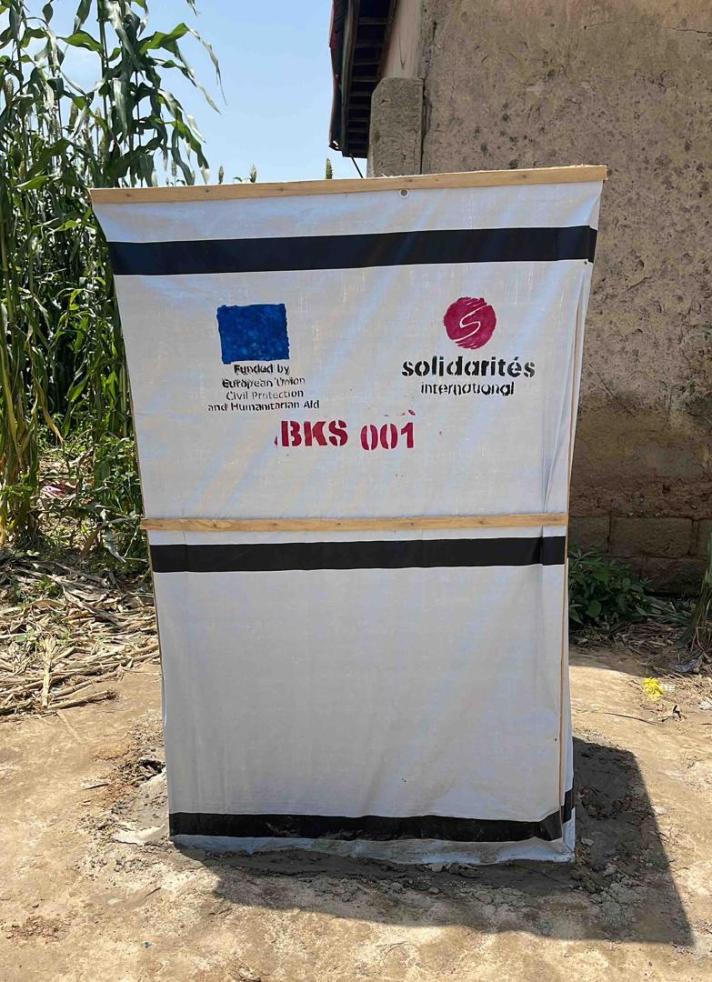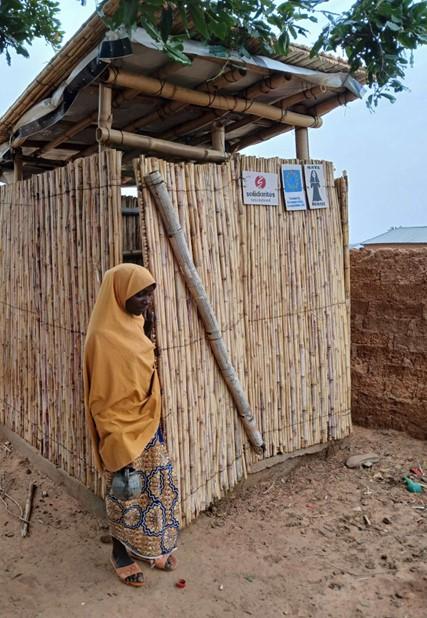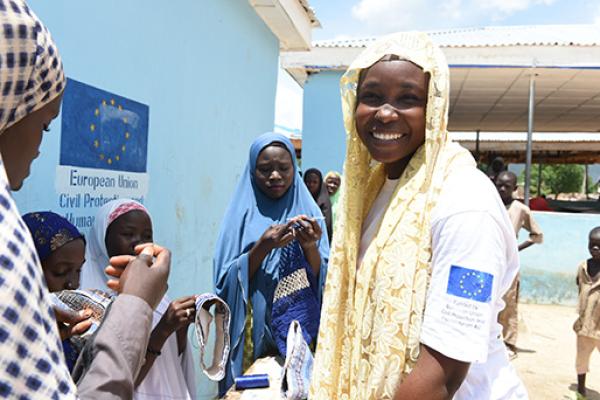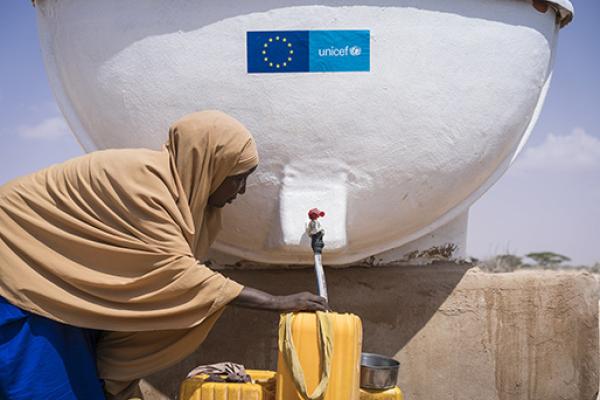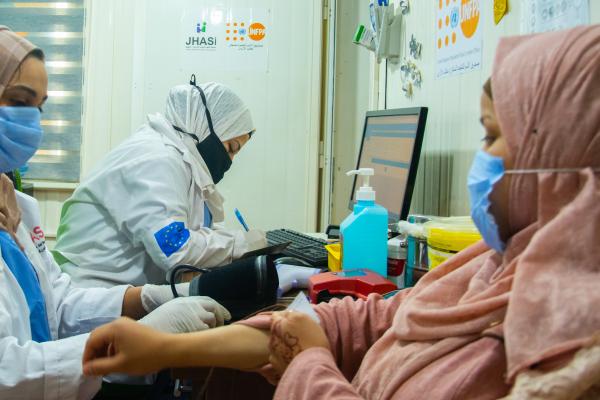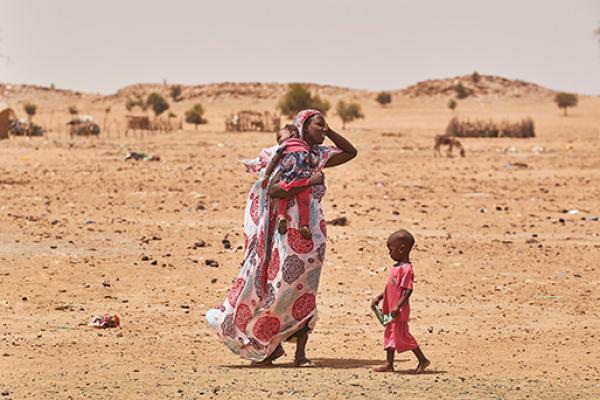When the Alau dam in Nigeria’s Borno state burst its banks after incessant rains pounded the region in early September 2024, a disaster of apocalyptic proportions unfolded. The state capital, Maiduguri, was deluged in no time. Bridges collapsed, houses and crops were washed away and 400,000 people had to relocate.
Borno state has been the epicentre of a violent conflict over the past 15 years, and 900,000 people were already living in camps. Many of these displaced had to move again after the flash floods.
When climate change and internal displacement impact create a tragic ‘perfect’ storm like in Maiduguri, innovations in sanitation become crucial. In 2023, Solidarités International (SI), with support from the European Union, introduced an innovative latrine solution called Birkaroon. Originating from the Somali term for “better than steel”, this climate-smart sanitation technology has been piloted to address the pressing needs of internally displaced people and host communities in volatile areas.
With its unique design and low cost, the ‘Birkaroon’ has many benefits. Using on-site sanitation technology it provides a durable and cheaper alternative to traditional pit latrines. It requires minimal material and expertise to build, making the latrine quick to install, resistant to collapse, and relatively inexpensive while limiting environmental impacts.
Fast and cost-effective
When people were hastily relocated after the Maiduguri flooding, SI was able to construct a Birkaroon latrine in Bakasi camp in just 5 hours with 3 unskilled workers trained on-site. A new milestone.
In an emergency, when speed to scale up sanitation coverage is of the essence, this new technique makes it possible to install 20 latrines in just a day with 10 groups of 3 workers.
“Over 70% of the greater Maiduguri area was submerged after the flash floods. Local water sources were contaminated which heightens the risk of waterborne diseases. A cholera outbreak has now been declared in Borno state,” says Alexandre Castellano, Head of EU Humanitarian Aid Operations. “Improving sanitation and hygiene conditions is of the utmost importance and urgent.”
Limiting environmental and health risks
The Birkaroon’s lining is made from polypropylene or discarded cement bags filled with soil removed from the pit itself, forming a conical-shaped pit that is easy to construct and highly resilient. The conical shape provides stability even in soft or flood-prone terrain.
The model has been specifically engineered to limit environmental contamination and health risks. It allows for waste to decompose safely and gradually without frequent emptying.
Treated with lime and managed carefully, the sludge can be stored for over 4 years before it is safe to be repurposed as farm manure, reducing the need for regular desludging.
“The Birkaroon latrine pit costs only $50-70 to dig and line, less than half the cost of a conventional masonry-lined pit, which can exceed $150,” says Chaungo Barasa, SI’s Water, Sanitation & Hygiene coordinator in Nigeria. “The Birkaroon can also be dug and completed by families themselves in 2 to 3 days. It empowers people to take charge of their own sanitation needs. It is an affordable, cost-effective and scalable solution for crisis response.”
High user acceptance and proven durability
Since its pilot introduction, the Birkaroon latrine has been well-received, with user acceptance rates at 98% across the 1,000 units built in North-East and North-West Nigeria. With its long lifespan, it reduces long-term maintenance costs and enhances sanitation sustainability.
In other words, the Birkaroon is an ideal solution for flood-prone, low-resource settings that are experiencing an emergency like the recent flash floods. As climate challenges grow, innovations like these offer a practical path to improving sanitation access for Nigeria’s most vulnerable communities.



